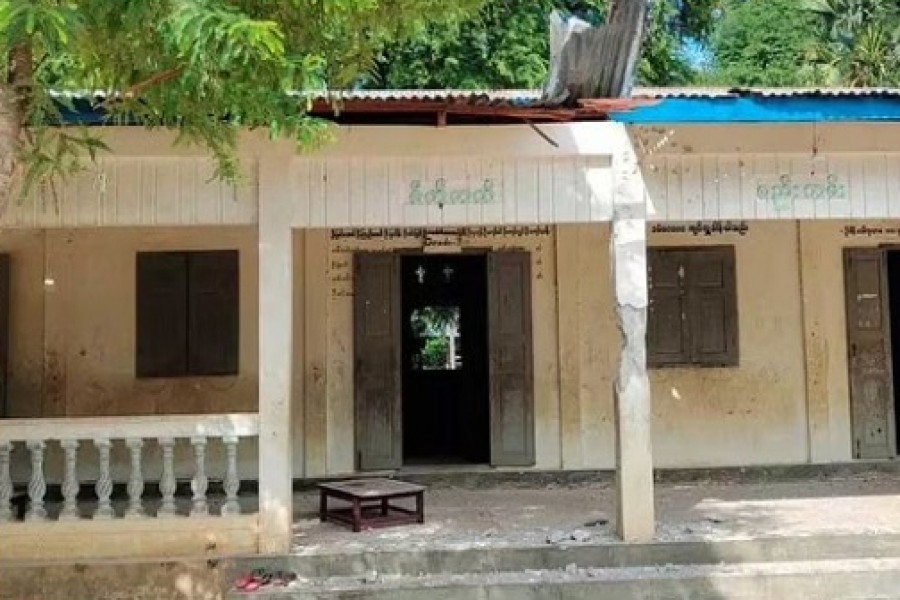At least 11 children have been killed and 15 more are missing after army helicopters shot at a school in northern Myanmar, Unicef has said.
Troops and helicopter gunships opened fire last Friday on the temple school in Sagaing region, a rebel stronghold.
Myanmar's military government said it had been an attack on insurgents they claimed were hiding in the school in Let Yet Kone village.
The school's students ranged from those in kindergarten to young teenagers.
The BBC's Burmese service had earlier confirmed that at least six children were killed - two boys aged seven and 14 and three girls aged seven, nine and 11. Another boy, aged 13, was hit by a bullet while fishing nearby with his father.
Most of the children's bodies were taken away by military troops, they said.
Six adult villagers were also killed on the day by troops, said BBC Burmese, including five men and one woman.
Images shared on social media showed what appeared to be bullet holes and blood stains at a school building, said reports BBC citing a Reuters report.
Unicef, the UN's children's agency, said the children had died under "indiscriminate fire" in the air strike. It called for the immediate release of the missing 15 children.
"While more details are still being verified, Unicef offers condolences to the parents and families who lost their children," the agency said in a statement on Monday.
"Schools must be safe. Children must never be attacked."
Myanmar's military overthrew Aung San Suu Kyi's democratically elected government in February 2021.
More than 1,500 people have been killed by security forces since the coup, according to the Assistance Association for Political Prisoners (Burma).
The extent of deadly fighting and battles this year are indicative of a civil war, observers say. The government faces stiff resistance in large parts of the country where there is an active guerrilla front known as the People's Defence Force (PDF).
The government's use of aerial attacks has become common in resistance areas, where its troops struggle to fight against insurgent groups supported by the local population, says the BBC's South-East Asia correspondent Jonathan Head.


